Format
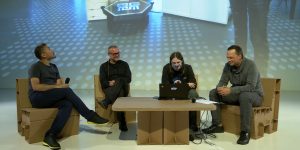
Ars Electronica Futurelab: Opening Talk
In this opening talk, the directors of the Ars Electronica Futurelab, Horst Hörtner, Roland Haring and Hideaki Ogawa, will talk about the role of the Ars Electronica Futurelab – Ars Electronica's research and development department –, its current research topics and projects as well as what you can expect at Open Futurelab this year.
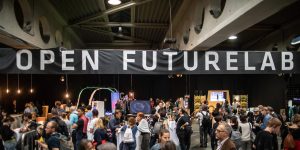
Open Futurelab Exhibition
The Open Futurelab Exhibition showcases the current research approaches and projects by the Ars Electronica Futurelab – Ars Electronica's Research and Development department.

The Wild State: Networked
Exhibition by partner universities of the University of Art and Design Linz
The Wild State: Networked exhibition seeks to leave the state of uncertainty behind us by bringing some of the most recent and compelling contributions to the Hauptplatz in Linz. We are delighted to present works by Master and PhD-students touching on topics related to the truly “Wild State” we are currently in, and the natural processes related to it.
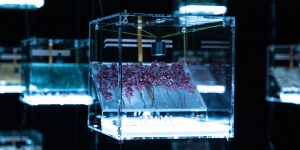
The Transparency of Randomness
Mathias Gartner (AT), Vera Tolazzi (AT)
"The Transparency of Randomness" is an interactive installation that provides insight into the world of randomness. Random numbers are continuously generated through a transparent dice system, to be used as the basis for real-time calculations and visualizations. Through its use of diverse materials, the process is influenced by the complexity of nature.
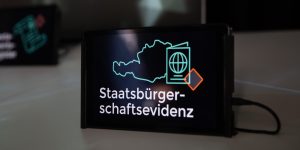
Digital Government in a Box
LIT Law Lab, Johannes Kepler University (AT)
From the “transparent citizen” and “social scoring” to AI-supported truth finding in the courtroom and machine-generated administrative notices: the digitization of administration and jurisdiction has many facets. It requires not only a consideration of what is technically possible, but also of what is legally permissible and what is desired in terms of legal policy. Against this background, the LIT Law Lab has two installations dedicated to the legal framework conditions (fundamental rights and data protection), problems and proposed solutions for a digitized enforcement.

Al truth machine
LIT Law Lab, Johannes Kepler Universität (AT)
From the “transparent citizen” and ”social scoring” to AI-supported truth finding in the courtroom and machine-generated administrative notices: the digitization of administration and jurisdiction has many facets. It requires not only a consideration of what is technically possible, but also what is legally permissible and what is desired in terms of legal policy. Against this background, the LIT Law Lab has two installations dedicated to the legal framework conditions (fundamental rights and data protection), problems and proposed solutions for a digitized enforcement.
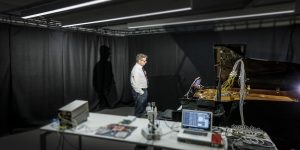
Biocomputer Rhythms
Interdisciplinary Centre for Computer Music Research (ICCMR), University of Plymouth (UK), Eduardo Reck Miranda (BR/UK)
Biocomputer Rhythms is a piece for prepared piano and percussion. It is a musical duet between a pianist and an intelligent interactive biocomputer. The biocomputer listens to the piano and produces musical responses during the performance. The responses are played on percussion instruments and on the piano by the pianist. The piano is prepared with electromagnetic actuators positioned inside the instrument to vibrate its strings. Electromagnetic actuators are also used to vibrate percussion instruments.
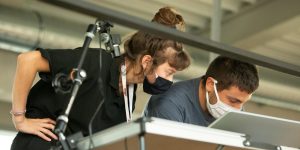
Performance Workshop: Enacting Innovation
Judith Igelsböck (AT), Friedrich Kirschner (DE), Sarah Buser (CH), Mónica Rikić (ES), Leoni Voegelin (CH), Tomás Montes Massa (CL), Laura Zoelzer (DE)
Enacting Innovation is a participatory staging of the social fabric surrounding contemporary innovation practices. Participants will negotiate the roles and situations that are frequently encountered in innovation processes and act out conflicts with each other and the technical infrastructures typically employed within such contexts. The simulation is inspired by research on ‘innovation scripts’ – the recipes followed in dealing with the omnipresent pressure to prove innovative ability.
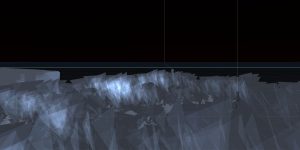
Random Rhetoric
MADE Group (GR)
“Random Rhetoric“ refers to computerized practices in politics, which are carried out through computers under the norm that political ideas operate as an outcome of mechanized processes and statistics, aiming at the absolute persuasion, the seduction of the audience, allured from the representation of a machine mimicking a human being.
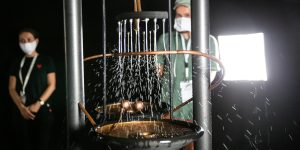
Dancing Water
Leon Kainz (AT)
This installation is based on a simple physical principle: the generation of electrostatic charges using water. The charged water droplets whirl in dynamic tracks around copper rods and react to nearby bodies. The collected charge can make a light bulb glow and generate flashes of lightning that can be centimetres long.
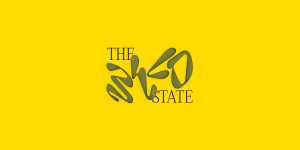
The Wild State
Campus
THE WILD STATE is the title of this year’s Kunstuniversität Campus activities at Hauptplatz Linz during Ars Electronica Festival 2020 from 9. – 13. September 2020. Existing since 2002, the intention of the Campus format is to invite outstanding international universities working in the academic fields of media arts and design. This year with an exhibition with contributions by various partner universities, as well as the departments Interface Cultures, Visual Communication, Fashion&Technology, Art Education, and Design: Tech.Tex. Special events comprise façade projection “Interfacing Hauptplatz”, the Internet flea market “Yami-ichi”, discursive format “Agora Digitalis” and the top notch nightline “Sound Campus”.

JKU LIT @ Ars Electronica
The digital revolution, demographic changes, and the climate crisis–addressing the complex, conflicting fields of our time requires an epistemic landscape that is conducive to traversing academic parameters. Crossing the borders between disciplines should be considered a starting point for possibilities – even essential as a to interlink them – rather than an act of deconstruction.
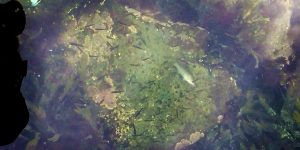
Oslofjord Ecologies Expedition
Art in Society Research Group and FeLT project, Oslo Metropolitan University (NO) in collaboration with SENT (NO)
The Oslofjord Garden is a wet and blue video tour of the fjord, encompassing site-specific footage as well as artists’ contributions, archival material and conversations with artists and scientists. The Oslofjord contains ecological connections and challenges that are specific and tangible, cultural practices and interactions. This work is based on the Oslofjord Ecologies artistic research platform and book, Oslofjord Ecologies. Artistic Research on Environmental and Social Sustainability.
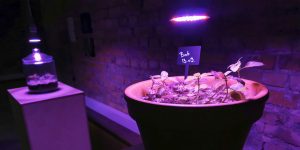
Planting a Resort for Mental Ecology
MPLab – Liepāja University Art Research Laboratory (LV)
People of Liepāja know very well that a garden is essential – without planting a park along the coast, the little seaside town would be consumed by sand, wind and water. The roots of trees keep the structure of the dunes stable, and people of Liepāja can retreat from the everyday struggles and storms in a safe garden environment.
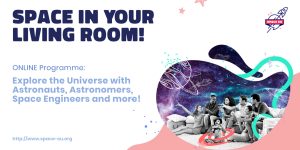
The Step into Space Garden
Leiden University (NL)
The Step into Space Garden is a journey of discovery through the story of space and your part in it. It presents online and in person events bring together space sciences and arts, through exhibitions and participatory activities with a focus on projects by and for youth.
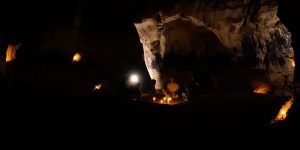
Finding Amir / From Jerusalem to the Judaea Desert, Israel
Musrara, the Naggar School of Art and Society (IL)
The day that Covid19 sent us all into isolation, Amir Meir, a member of the Musrara Sonic Art Research Group׳ announced he was going to spend the quarantine in one of the many caves in the Judean Desert near Jerusalem and disappeared ever since. With the aid of space and sound illusions practices, the film "Finding Amir" tries to touch on the in-depth questions about the imagined realities that lie behind the walls of digital and symbolic representation.
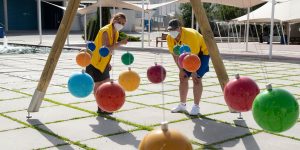
Pendulum Garden
Parque de las Ciencias (ES)
The Pendulum consists of 17 pendulums of different lengths and colors which represents the 17 Sustainable Development Goals. It aims to make society aware of the importance of achieving them by 2030. In this way, science and art come together to spread the importance of acting globally to achieve equality among people, protect the planet and ensure prosperity as part of the new sustainable development agenda.
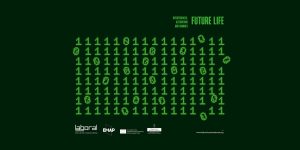
Future Life. Interferences, Alterations, Changes.
Laboral Centro de Arte y Creación Industrial (ES)
The artists in this exhibition work with blood and chlorophyll to investigate the connections between human and plant life. They use microbial cultures, robotic clams and sensors to demonstrate the contamination of the oceans; or apply AI algorithms so that something as innocent as a flower can visualize financial speculation. They also engage with the new icons, practices and virtual devices that define the increasingly polarized and radicalized scenarios of online social and cultural ecosystems.
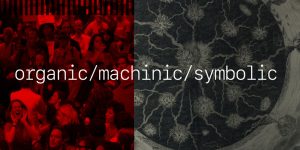
Sensory Orders
ŁAŹNIA Centre for Contemporary Art (PL)
The Ars Electronica Garden Gdańsk, hosted by ŁAŹNIA Contemporary Art Centre, features Sensory Orders, a project examining the different orders of sensemaking taking place under our (current) conditions of extreme precariousness and uncertainty.
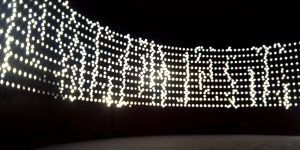
remote/displaced
Äänen Lumo (FI), Aalto University (FI), quietSpeaker (FI)
remote/displaced allows for an immersive exploration of a virtualized physical space: Öljysäiliö 468, a vast, decommissioned oil tank in East Helsinki. It takes the shape of a small collection of brief immersive audio-visual visits to this special remote place, exploring ways to listen to the encounter between sound, technology, space and landscape, as it emerges like a precarious ecosystem, where the boundaries between natural and artificial are constantly renegotiated and deformed by technology.


